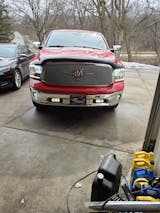Why is my radiator fan so loud?
Your car's radiator fan keeps the engine running at optimal temperature by removing excess heat. However, if you've noticed that your radiator fan has become unusually loud, there may be cause for concern. In this article, we will examine the various reasons behind a noisy radiator fan.
Debris buildup
A common reason for a loud radiator fan is a buildup of debris, such as leaves, dirt, or other foreign objects. Over time, these materials can get caught in the fan blades, causing imbalance and noise during operation.
To correct this problem, open the hood and visually inspect the fan blades. If you notice any debris, carefully remove it with a soft brush or compressed air.

Worn Bearings
The radiator fan runs on bearings that allow for smooth rotation. Over time, these bearings can wear out, causing increased friction and noise. If you hear a grinding or whining noise coming from the fan, worn bearings may be the culprit. Replacing the entire fan motor is often the most effective solution for worn bearings.
Faulty fan clutch
Some vehicles use a fan clutch to control the speed of the radiator fan based on engine temperature. If the fan clutch is faulty, it may cause the fan to spin at higher speeds, resulting in increased noise. If a faulty fan clutch is identified as the cause of loud fan noise, it's recommended that it be replaced.
Overheating Problems
An overheating engine can result in increased fan activity as it attempts to cool the system. If your engine is constantly running hot, the cooling fan will run more frequently, causing it to be louder than usual.
Investigate the root cause of the overheating problem, which may include problems with the coolant system, a faulty thermostat, or a faulty water pump. Addressing these underlying issues will not only reduce fan noise but also prevent potential engine damage.

Electric Fan Motor Issues
If your vehicle has an electric cooling fan, problems with the electric motor can contribute to excessive noise. Common problems include motor wear, electrical malfunctions, or damaged wiring.
Inspect the electric fan motor for signs of wear or damage. If found, the motor may need to be replaced. In addition, check the electrical connections and wiring to ensure there are no loose or damaged components contributing to the noise.
Conclusion
A noisy radiator fan can be a symptom of several underlying problems, ranging from simple debris buildup to more complex mechanical issues. Regular maintenance, such as cleaning the fan blades and inspecting the cooling system, can help prevent some of these problems. However, for more significant problems, such as worn bearings or a faulty fan clutch, professional assistance is recommended to ensure accurate diagnosis and proper resolution.
Featured Products
- $479.99
$499.99- $479.99
- Unit price
- / per
- $549.99
$559.99- $549.99
- Unit price
- / per
- $489.99
- $489.99
- Unit price
- / per
- $469.99
$489.67- $469.99
- Unit price
- / per




















